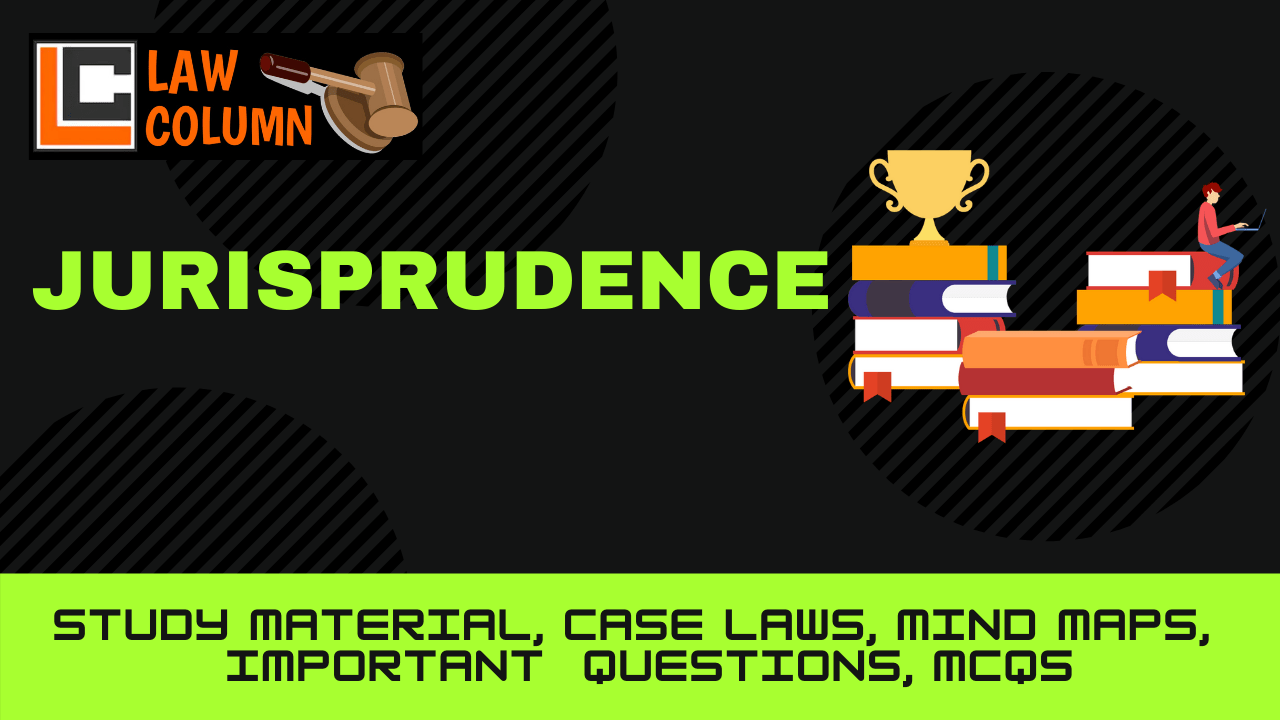ELEMENTS OF POSSESSION
According to Holland legal position has two essential element namely:-
- Corpus
- Animus
1) Corpus Possessionis
In corpus Possessionis there must exist some physical contact of a person with a thing which he possesses so as to give rise to a reasonable assumption that other will not interfere with it. The physical control of the possessor of things implies that others will not interfere with the possessor’s right to use enjoyment of that think. That assurance of non interference can be secured in any of the following ways:-
1) The physical power of the possessor over the thing in his possession act as a guarantee of user of that thing. It is also an assurance against the non-interference of other in the right of his possession. The person in possession generally use walls, gates, doors locks etc. to exclude other from interfering with his legal possession.
2 In many situations a physical presence of the possessor is enough to retain possession although he may not have necessary physical strength to resist interference.
For example, a coin in a child hand is sufficient to denote his possession over the coin although he does not have the physical strength to retain the coin.
3) If a person keep a thing which is in his possession in a hidden place it is an effective mode of excluding external interference and keeping that thing secured.
4) In modern society wrongful possession is not deemed with favour, therefore respect for the rightful claim prevents others from interfering with the legal possession of the possessor.
5) At time possession of an object tends to confirm possession of certain other thing which are connected with it on accessory to it. Thus possession of land confirm possession of things that are on or under it. But the position in this regard is however not very clear as seen in the case of (“South Staffordshire Water Works Corporation V/s. Chairman (1896) 2 QB 44”)
6) Another measure of security of possession in the manifestation of the animus Domini. The visibility of the claim is another element in the factual security of its enjoyment. Thus using a thing openly carries with a prima facie rightmindedness of its possession
One notable feature of Corpus is that possession is not lost by mere temporary absence of the position from the object. “Corporal conduct is not the physical element which is involved in the conception of possession. It is rather the possibility of dealing with the thing as we like and of excluding others. If we consider the various mode in which the possession is gained or lost, we shall recognise this very clearly”.
2) Animus Possidendi:
Mere juxtaposition is not a possession. It must indicate some possibility of physical control accompanied by a ‘will’ to exercise such control. This mental element in possession constitutes animus. The classic roman jurist recognised two degree of control over an object possessed, the lower degree of which is described as detentio while the higher one was called possessio, properly so called. Mere detentio exists when the intention to dispose of the object in possession is limited by the recognition of the outstanding right of another.
1) The animus or desire to possess need not necessarily be rightful, it maybe even be consciously wrongful. A thief has a possession of stole thing no less real than the true owner of those things.
2) The possessor must have exclusive claim over the thing in his possession. That is, he must intend to exclude other from use and enjoyment of that think the exclusion however need not be accepted for example a person shall still be deemed to be in legal position of land notwithstanding the fact that some other person on public at large may possess a right of a way over other that land.
3) The animals need not amount to a claim or an intention to use the thing as owner. Thus in case of pledge, the pledgee has the possession of the thing pledged although he only intends to retain it in custody as a security to ensure repayment of his debt.
4) The animals need not be necessarily that of the possessor himself e.g., a servant, agent, trustee or a bailee does not keep thing in possession for his own use but hold them from some other person.
5) The animus may not be specific, instead, it may be merely general. For instance, a person who has caught fishes in his net has possession over all of them although he does not know their exact number. Likewise, a person is deemed to be in possession of all the book in his library although he may not even know about the existence of some of them.
It must be stated that when a person has possession of receptacle, such as a box, cabinet or envelope, he has also the possession of the contents thereof.
The case of (“N.N. Majumdar V/s. State AIR 1951 Calcutta 140 “) may be cited in which the question of animus came up for determination before the high court of Calcutta. In this case, the police made a search of the accused house in the hope that the pistol would be recovered from there but no such recovery could be made. In the meantime the accused had a quick word with his wife who went out and returned within three or four minutes with a pistol and some cartridges. The police took plea that as per Section 27 of Evidence Act, it should be presumed that the pistol was recovered from the possession of the accused. The court however rejected the contention of the prosecution and held that the Arms Act being a special enactment, the fact of animus must be specifically proved and mere existence of Corpus without animus is ineffective to constitute possession.
Author: vivek khandelwal,
Amity University Rajasthan, 2nd Year/ BBA.LL.B(Hons.)


Very Helpful
Thank You!!!